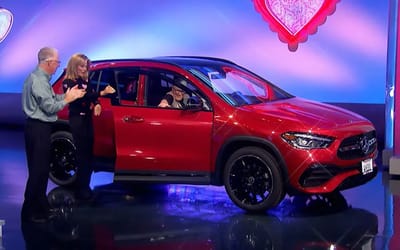Study found that we may have been wrong about EV batteries and they'll actually last 40 percent longer
Published on Aug 18, 2025 at 6:01 PM (UTC+4)
by Keelin McNamara
Last updated on Aug 18, 2025 at 8:17 PM (UTC+4)
Edited by
Emma Matthews
EV batteries and their performance in EVs are topics that are constantly under study and scrutiny.
Studies conducted over the years have helped EV batteries to become what they are today.
One study that was conducted in December shows that we may actually have been wrong about what we thought we knew.
Because it is now being shown that EV batteries will actually last 40 percent longer than we thought.
DISCOVER SBX CARS: The global premium car auction platform powered by Supercar Blondie
Stanford study shows remarkable data on EV batteries
A fascinating study of EV batteries has been conducted – and the results are fascinating.
The study, conducted by Stanford University, was published in Nature magazine.
And the results of the study make for truly fascinating reading.
It turns out that, in real-world situations, EV batteries may last up to 40 percent longer than previously thought.
This would amount to – on average – an extra 300,000 kilometres of range.
Unlike lab testing, the Stanford University study was conducted in real-world conditions.

This means accelerating, braking, queueing in traffic, and parking up for long periods of time.
And, it turns out that the more realistic the test, the better the batteries performed.
The research saw 92 cells tested over a period of 24 months.
These cells were across four different EV discharge profiles, ranging from constant discharge to dynamic discharging based on real driving data.
All the batteries were cycled in a temperature-controlled chamber at 35 °C.
What does a 40 percent increase in lifespan mean for EVs?
The study produced other intriguing data, including the revelation that sharp, short accelerations were associated with slower battery degradation – contrary to popular assumptions.
So, what does this test mean for the future of cars and EVs?
Well, the data – on the surface – would suggest that EVs can be a viable alternative to ICE-powered vehicles.

Getting up to 40 percent longer out of EV batteries would be a certified game-changer.
What do you think of the Stanford study concerning the power source?
Would an increase of 40 percent in the lifespan of EV batteries convince you to buy one?




